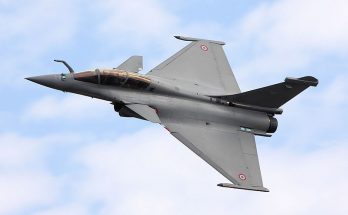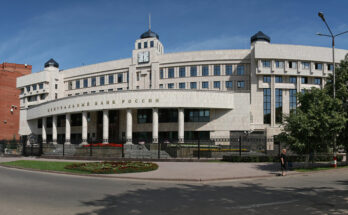The populist coalition government in Italy intends to pair-down defense spending during the country’s 2019 fiscal period. The government – consisting of the populist League party and the anti-establishment Five Star party – aims to slash €450 million ($512 million) from the defense allocation under its upcoming budget.
The coalition government headed by Prime Minister Giusseppe Conte took office in June and immediately raised questions regarding the country’s direction in Europe and NATO after Conte advocated closer ties to Russia in his debut speech to parliament.
One area where commitment to big defense programs and NATO inter-operability does not seem under the microscope to such a degree is Italy’s participation in the F-35 new-generation combat aircraft program. Having voiced its displeasure at the fighter project and repeatedly vowed to scrap the planned buy of 90 Lightning II fighters prior to entering government, the Five Star party grasps the need to protect the Italian defense industry which benefits from the program through its F-35 Final Assembly and Check-Out (FACO) facility at Cameri in the northern region of the country.
Ultimately the government appears to favor slowing down its F-35 batch purchases in an effort to spread out payments. It may opt to trim the overall order in the future but for now that is not on the table.
Other projects, however, may not be so lucky.
In order to find savings from defense that will aid the government’s seemingly contradictory policies of cutting taxes and expanding the social welfare net a number of programs will be suspended in 2019.
These include all ongoing purchases of the NH90 helicopter for the Italian Army and Navy, as well as upgrades to the Italian Air Force’s fleet of Tornado combat aircraft. These two measures are expected to bring about €370 million ($421 million) in savings.
The purchase of the CAMM-ER missile system – an extended range variant of the Common Anti-air Modular Missile developed by MBDA as a replacement for Italy’s short- and medium-range air defense systems based on the 40-year-old Aspide missile – will be postponed for a year in order to garner €30 million in savings. Financing for this project – launched in 2011 and funded under the previous government’s FY17 budget – was cut by the government on October 1.
One project being scrapped entirely is a plan to create an ‘Italy Pentagon’, a unified headquarters in Rome’s suburbs consolidating the separate buildings used for each armed service in the city center. This was due to cost EUR1.1 billion ($1.25 billion) in total with an initial EUR50 million originally slated for payment in 2019.
The cutbacks planned for defense come after defense procurement topped €5 billion ($5.69 billion) this year, following a €4.7 billion ($5.52 billion) total outlay on military capitalization in 2017.
They would also buck a trend in European defense investment, which is struggling to quickly catch up to past topline figures across the NATO Alliance spectrum after slashing armed forces in order to tackle sovereign debt and budgetary deficit concerns in the wake of the 2008 financial crisis. With Russia’s behavior along its western borders – the post-Soviet “gray frontier” of Europe – plus the Trump administration’s admonitions regarding supposed NATO “free-riders” of American military support the trend in European military investment has been upwards for three years.
For one year at least Italy plans to go in the opposite direction.
Dan Darling is Forecast International’s director of military and defense markets. In this role, Dan oversees a team of analysts tasked with covering everything from budgeting to weapons systems to defense electronics and military aerospace. Additionally, for over 17 years Dan has, at various times, authored the International Military Markets reports for Europe, Eurasia, the Middle East and the Asia-Pacific region.
Dan's work has been cited in Defense News, Real Clear Defense, Asian Military Review, Al Jazeera, and Financial Express, among others, and he has also contributed commentary to The Diplomat, The National Interest and World Politics Review. He has been quoted in Arabian Business, the Financial Times, Flight International, The New York Times, Bloomberg and National Defense Magazine.
In addition, Dan has made guest appearances on the online radio show Midrats and on The Media Line, as well as The Red Line Podcast, plus media appearances on France 24 and World Is One News (WION).




